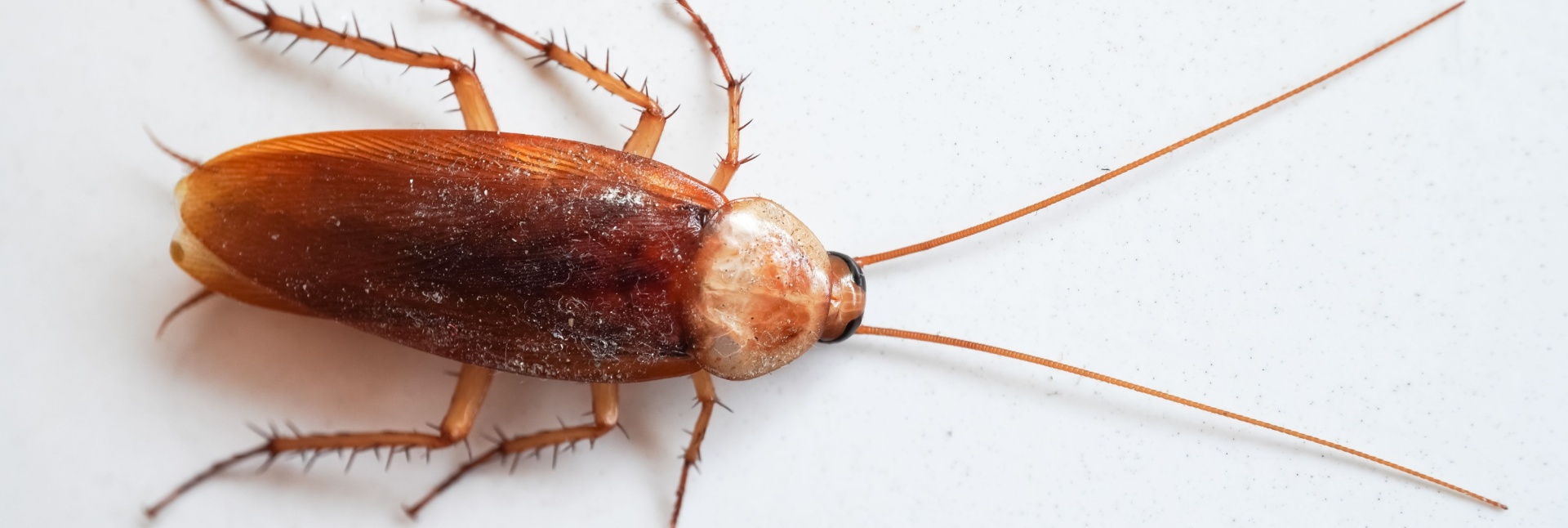Cockroach Allergies: How These Pests Affect Your Health

Cockroaches are more than just an unpleasant sight in your home — they can also pose serious health risks. One of the lesser-known dangers associated with these pests is their potential to trigger cockroach allergies. For many people, exposure to cockroach allergens can lead to allergic reactions and exacerbate respiratory conditions such as asthma.
Understanding the impact of cockroach allergies and how to prevent infestations is crucial for protecting your family’s health. In South Carolina, where cockroaches are common due to the warm climate, professional pest control is often necessary to keep these pests under control.
What Are Cockroach Allergies?
Cockroach allergies occur when the immune system overreacts to proteins found in cockroach saliva, droppings, and shed skin. These proteins act as allergens that can trigger a variety of symptoms in sensitive individuals.
Cockroach allergens are airborne and can easily contaminate household dust, leading to ongoing exposure, even when you don’t see live roaches. This makes controlling cockroach populations critical for minimizing allergic reactions.
Common Symptoms of Cockroach Allergies
People with cockroach allergies may experience symptoms similar to those caused by other common allergens like dust mites or pet dander, including:
- Sneezing
- Runny or stuffy nose
- Itchy, watery eyes
- Skin rashes or hives
- Coughing and wheezing
- Shortness of breath or difficulty breathing
- Aggravated asthma symptoms
Children and individuals with asthma are especially vulnerable to the effects of cockroach allergies. Studies show that exposure to cockroach allergens is a significant risk factor for the development and worsening of asthma, particularly in urban areas with high infestation rates.
How Cockroach Allergies Affect Your Home Environment
Cockroaches thrive in warm, humid environments and are frequently found in kitchens, bathrooms, basements, and other areas where food and moisture are readily available. Their presence leads to contamination of surfaces and air with allergenic particles.
Even after cockroaches are gone, allergen residues can persist in carpets, upholstery, and HVAC systems, continuing to trigger allergic reactions unless properly cleaned and treated.
Preventing Cockroach Allergies Through Effective Pest Control
The most effective way to reduce cockroach allergies is to prevent or eliminate infestations altogether. Here are some important steps homeowners can take:
1. Maintain a Clean Living Space
Cockroaches are attracted to food crumbs, grease, and moisture.
- Clean kitchen counters, floors, and appliances regularly.
- Store food in airtight containers.
- Don’t leave dirty dishes or pet food out overnight.
- Empty trash daily and keep bins covered.
2. Reduce Moisture Sources
Fix leaky pipes and faucets, improve ventilation, and use dehumidifiers in damp areas to make your home less hospitable to roaches.
3. Seal Entry Points
Block gaps around doors, windows, plumbing, and electrical outlets to prevent roaches from entering your home.
4. Regularly Clean and Vacuum
Use a vacuum with a HEPA filter to remove allergen particles from carpets and upholstery. Wash bedding and curtains frequently.
5. Professional Cockroach Control Services
While these steps help, many infestations require professional treatment to fully resolve. That’s where Team Veterans Pest Control comes in. We conduct thorough inspections to identify infestation sources and apply targeted treatments that eliminate cockroach populations effectively.
Don’t Let Cockroaches Threaten Your Family’s Health
Team Veterans Pest Control is a locally owned and operated company with years of experience serving South Carolina residents. Our expertise in dealing with cockroaches and managing cockroach allergies makes us the go-to solution for homeowners seeking reliable roach extermination. For more information about managing cockroach allergies and professional roach extermination, visit the roach extermination page.